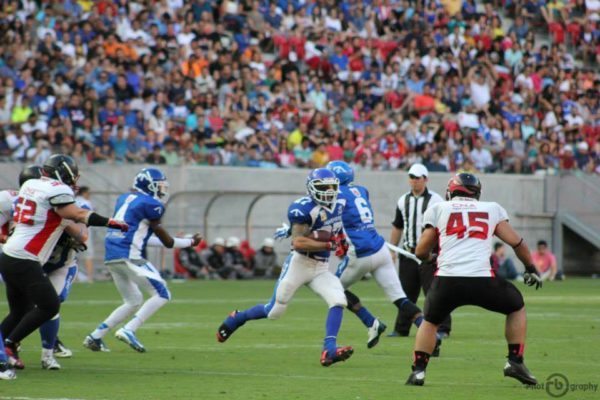Warm weather, gorgeous beaches, friendly and beautiful people are some of the words described by foreigners visiting Brazil.
Naturally, American football players and coaches are always intrigued when an opportunity arises to play or coach in Brazil.
Being able to do what you love in a beautiful country, learn a new language and culture are some of the selling points to players/coaches looking to further their careers. Brazil has in fact all of the items mentioned above, but playing football in Brazil also has its challenges.
To start, Americans looking to play/coach in Brazil will need to obtain a visa before they enter the country. At first, there is also an adjustment, as a different language and culture will require some time to get accustomed to.
Once the initial challenges are out of the way and players get in the football field, they will start to learn that Brazilian players are very receptive to learning and improving their games. Da’Ronte Smith, who has been in Brazil for two years and is the current Criciuma Miners quarterback:
“What surprised me the most is the hunger of the players here. They want to learn so much about the game from techniques even down to the terminology of the game. It’s actually really exciting every time I am asked a question because I just want to help them become better.”
Da’Ronte Smith Photo: Beno Küster
As American players have a tendency of having played the game since an early age and have a better understating of the game, it is also very common for players to take on coaching roles. From creating playbooks to helping local players understand plays, the responsibilities of foreign born players or players that have played in the United States goes beyond executing their plays.
Other differences often mentioned by American players playing in Brazil, is the different structure teams have and the lack of support from local businesses and government. Many teams are managed by players, who will hold a player/president position and many times will invest their own money or put together events and sales to ensure that the team can stay afloat.
Facilities and playing fields can be challenges faced by American players as well, as former Tennessee State University and current defensive tackle for the Tubaroes do Cerrado, James Springfield Jr. suggests:
“What I dislike at times about playing in Brazil are the playing fields. In some instances, the the playing fields are not in good conditions”.
Springfield Jr. goes on to echo Smith’s thoughts when it comes to the level of interest from players in learning more about the game:
“There are a lot of opportunities for growth of American football in Brazil. Mainly because the guys here in Brazil want to learn and the want to get better. Whenever you have a thirsty for knowledge and the desire to get better, then growth will always occur.”
James Springfield Jr. Photo: Carlos Teixeira
As football continues to grow each and every day in Brazil, challenges are being addressed and team leaders are more aware that to be successful teams need to be well structured both on and off the field. Understanding the importance of delivering a good product to the fans has become a focus for many teams, however there still room for improvement as Recife Pirates, running back Sanchez Holder points out:
“Teams should do more events to get the community involved to display American football”.
There is much room for improvement in some aspects of football in Brazil and there are many opportunities for people to step up and address these challenges to help raise the level of football in Brazil.
However, the key element needed for implementing changes and addressing some of these challenges is definitely there: the desire of players and team leaders to learn and get better every day.

